Photographs: Ajay Verma/Reuters Agnikalam
Travelling by rail in India was once a pleasure, but has now become a forbidding challenge.
India's new government presented a fresh Railway budget on July 8. Its thrust comprised (1) an upward revision of ticket prices using a cost-plus approach reflecting international fuel prices; and (2) the introduction of a PPP approach due to the government's lack of resources to fund investment.
Both measures reflect essential corrections for past policy errors and corruption.
Undoubtedly it will hurt passengers' pockets unused to transparent or direct inflation corrections for holy cows such as rail tickets, petrol, or fertilisers.
They pay indirectly through a steady deterioration of product quality such as in railway services and infrastructure, road conditions, or soil quality and livelihood.
...
From nostalgic train journeys to nightmarish ones
Photographs: Reuters
I recall railway journeys in the 1960's when Madras-Calcutta took 2 ½ days, Calcutta-Bombay 2, and Calcutta-Delhi 1 ½.
When my father was on official family leave, we travelled in large first class compartments impeccably cleaned at stations at father's will, where liveried bearers served food of your choice, continental or Indian. I still remember the aroma of chicken soup served in a white flattish platter.
Nevertheless, I preferred my grandmother's dry delicacies - fish fry, mutton chops, prawn cutlets, parwal dorma, trifle and, of course, luchi and aloo dum - despite father ceaselessly reassuring us railway food was safe because it was "antiseptic".
My siblings got down with him at every extensive stop, traversing the length of the platforms - Kharagpur and Gorakhpur being the longest, though quizzes of this type invariably felled our knowledge to his - devouring hot samosas, kachouris and tea while I stayed put on the top berth with a novel under my mother's protection.
Water came from the station's potable water tap and was quickly stored in a terracotta kalas to keep it cool. When he was not on such leave, father would take us all over India, "practical" education being the objective, on corridor trains, equally clean if not that spacious but with the promise of making ever new friends.
...
From nostalgic train journeys to nightmarish ones
Photographs: Reuters
There was a jolly mood through and through, once leading to the Mohan Bagan soccer team travelling with us and then landing at our Madras doorstep on the pretext of desiring ethnic food.
That, in turn, led to the inevitability of my being shunted out of my own room to the living room during their stay. I thought I must mention it in this world soccer season!
Those journeys were dreamlike. In search of a bygone era, and to satiate my wanderlust, I continue to take occasional train journeys, though it may seem like an oddity.
Recently I took round trips from Delhi to Gorakhpur and Dehradun, the objective being to visit remote villages in their hinterland to spend time there.
In eastern UP, I encountered abject poverty, describable only in the grossest terms. I distributed blankets and lunch boxes. Those who received blankets seemed younger than me but had laboured so hard that they were too arthritic to raise their arms high enough to receive the simple gift.
All those who received lunch boxes had knotted hair, ragged frocks or shirts, and dusty faces in a land with water bodies all around. The recent report on poverty criteria that modified the numbers from a recent past seemed irrelevant, if not amusing, faced with actual rural poverty.
...
From nostalgic train journeys to nightmarish ones
Photographs: Reuters
My hospitable hosts took me to many a temple whose deities I recognised except for one. She was Samay Devi.
I was impressed but obviously not surprised to have encountered yet another Indian omniscient; how appropriate I told myself, for one cannot capture or reverse time through known Physics or Complexity, and wondered how much time India had left to correct herself.
The other village further from Kemti Falls near Mussourie seemed better.
First, local Block elections were on with 220 voters who were all being given invitee status, safe from the morbidity of local elections in "advanced" states. The ground was heaped with fruit, though abandoned due to lack of transport.
The villagers looked healthy though the conditions of ancillaries such as teeth were abominable and the texture of their pinkish skin revealed a life of toil under a mountain sun. The homes had beds, sofas, TV and, most agreeably, overlooked beautiful ravines or valleys. I didn't want to return.
...
From nostalgic train journeys to nightmarish ones
Photographs: Navesh Chitrakar/Reuters
Also because I did not look forward to the return journey by train which has become an increasing, almost forbidding, challenge.
On both journeys, the forward journey was several hours late without a single explanatory announcement. The latrines were unusable except through self-hypnosis.
The food was murky. The compartment was filthy. Yet the families remained optimistic. The children played in the aisles without complaint, happy just to create a ruckus.
The adults reassured one another that the train "will make up time". Referring the matter to Samay Devi, I continued to write a pending report.
A short super-fast rail link between Mumbai and Ahmedabad could perhaps be digested as an accommodation to a new regime since it also appears to be focussing on O&M and infrastructure improvements.
...
From nostalgic train journeys to nightmarish ones
Image: A high speed New Delhi Agra test train leaves New Delhi station.Photographs: Shirish Shete/PTI
The public will accept the government's price increases since they perceive it by and large as correct. But it will not wait too long for things to transform.
To recall, the total route length of India's railway network is 65,000 km, with dailymail.co.uk reporting that India already possessed 53,000 km shortly after independence. The additional kms in almost 65 years is hardly impressive.
The results of the new policy would have to fructify rapidly. Rs 55,000 crores of project allocation were reported by the media to have yielded a one per cent project completion by the exited government.
Rhetorically, one could perhaps ask, why blame the Railways alone when irrigation or public services such as health and education may have even outcompeted the notoriety?
Screaming matches sponsored by the visual media seem to suffice aspirations for reform. On the Railway Budget evening, one anchor assembled five critics and apologists to discuss the Budget.
Amidst the cacophony, I wondered how many of them had taken a train ride in India during the last Plan period or two.
Had they actually experienced the deterioration or were they merely occupying pigeonholes in a singsong of vacuous chatter. I recommend that debaters have some field experience in any matter that they deem themselves competent to debate.

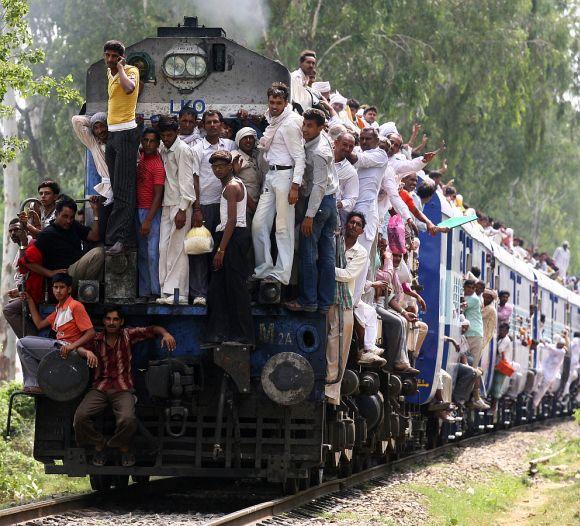
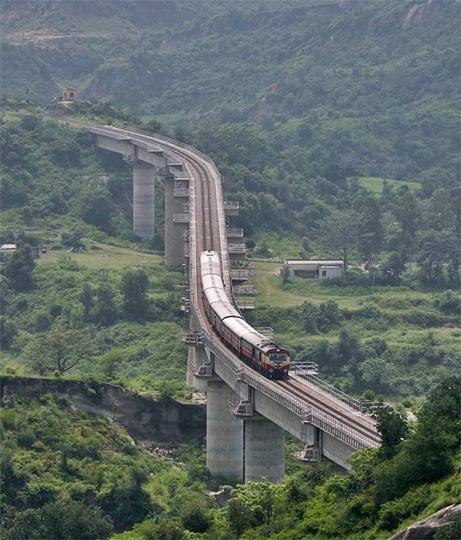
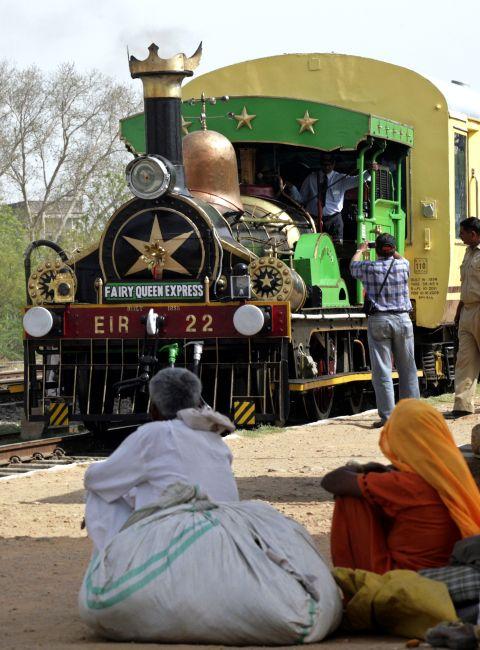
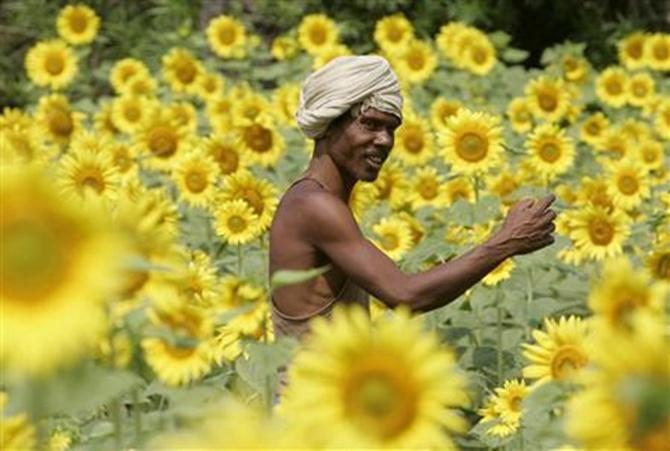
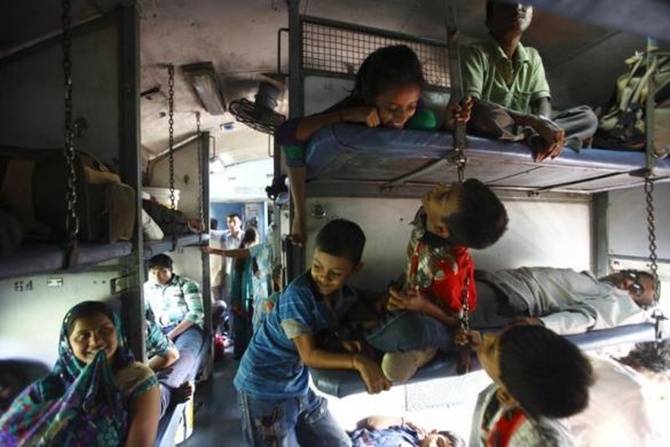


article